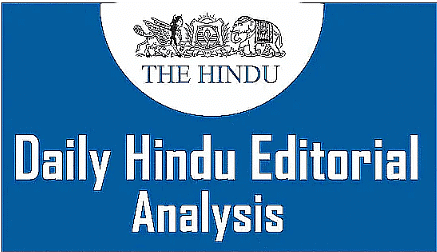UPSC Exam > UPSC Notes > Current Affairs & Hindu Analysis: Daily, Weekly & Monthly > The Hindu Editorial Analysis- 6th June 2024
The Hindu Editorial Analysis- 6th June 2024 | Current Affairs & Hindu Analysis: Daily, Weekly & Monthly - UPSC PDF Download

A New Era
Why in News?
The African National Congress (ANC), South Africa’s ruling party that led the country out of apartheid three decades ago, suered a setback in the May 29 general election when it lost its majority in Parliament for the rst time. In the nal results on Sunday, the ANC, currently led by President Cyril Ramaphosa, saw a dramatic fall in its vote share to 40.18%, from 57% in 2019, while the main opposition Democratic Alliance emerged as the second largest party with 21.81% vote.
About
- Translation and Definition: Apartheid translates to "separateness" or "the state of being apart" in Afrikaans.
- Official Start: It began in 1948, making segregation a legal and fundamental aspect of South African society.
- Racial Classification: Citizens were categorized into four racial groups: black, Indian, coloured (mixed race), and white.
- Interracial Relations: It became illegal for South Africans to engage in interracial relationships.
- Rights Denial: Black South Africans were stripped of political and economic rights, relegated to serving as cheap labor for white South Africans.
Resistance :
As early as the 1880s, the Imbumba ya Manyama (Union of Blacks) was formed, promoting an African identity beyond tribal distinctions.
- Formation of ANC:
- In 1912, the African National Congress (ANC) was established by elite Blacks to oppose disenfranchisement after the Union's creation.
- Initially, the ANC used petitions and polite dialogue to express demands.
- Change in Methods:
- By 1949, the ANC adopted the Programme of Action, advocating strikes, protests, and other forms of nonviolent resistance.
- Nelson Mandela emerged as a key figure during this period.
- Defiance Campaign (1952):
- The ANC launched the Defiance Campaign, encouraging people to intentionally break apartheid laws and submit to arrest.
- Sharpeville Massacre (1960):
- During a large demonstration in Sharpeville, police killed at least 69 black South Africans and wounded many more.
- The government declared a state of emergency, arresting over 18,000 people, including prominent black leaders.
- Nelson Mandela was arrested in 1962 and spent the next 27 years in prison.
- Soweto Uprising (1976):
- Students in Soweto protested against Afrikaans being imposed as the only language of instruction.
- Police opened fire on protestors, leading to further brutal crackdowns on resisting organizations.
- 1980s Resistance:
- Anti-apartheid forces unified around nonviolent resistance to maximize participation among non-whites and exert international pressure on the government.
- The latter half of the 1980s saw significant protests, mass non-cooperation, and strikes.
- Resistors established alternative community institutions, such as clinics and legal resource centers, to replace discriminatory government institutions.
Fall of Apartheid:
- In 1989, The resistance to segregation culminated in the Defiance Campaign with multiracial peace marches across the country, including in Cape Town, Johannesburg and Durban.
- In 1990, in a speech to the parliament, President de Klerk announced that “the time to negotiate has arrived”. He lifted bans on political parties such as the ANC, freed thousands of prisoners including Mandela, and lifted the state of emergency that had been imposed amidst rising protests in the 1980s
- On March 17, 1992, a referendum among the white South African population ushered in a new era in South Africa, once and for all. While systemic disadvantages continue to impact black South Africans, an era of political freedom and legal equality was instituted in 1992.
Nelson Mandela
- From establishing the first black law firm in South Africa to forming the African National Congress Youth League to negotiating with State President F. W. de Klerk for the end of apartheid in South Africa and becoming the first black president of South Africa.
Conventions against Racial Discrimination
1. International Convention on the Elimination of Racial Discrimination (ICERD):
- Adoption and Entry into Force: Adopted in 1965, effective from 1969.
- Significance: Principal international instrument defining and prohibiting racial discrimination in both private and public sectors.
2. Universal Declaration of Human Rights (UDHR):
- Nature: An international document adopted by the United Nations General Assembly.
- Purpose: Enshrines the rights and freedoms of all human beings.
The document The Hindu Editorial Analysis- 6th June 2024 | Current Affairs & Hindu Analysis: Daily, Weekly & Monthly - UPSC is a part of the UPSC Course Current Affairs & Hindu Analysis: Daily, Weekly & Monthly.
All you need of UPSC at this link: UPSC
|
44 videos|5271 docs|1113 tests
|
Related Searches
















